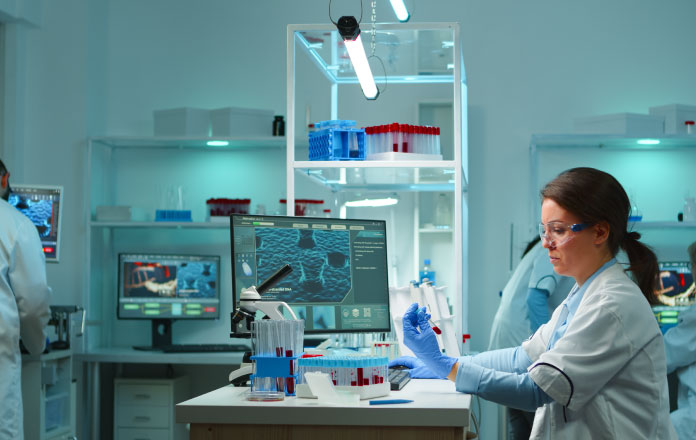Healthcare systems are changing fast. With government support and new digital tools, hospitals and labs are now focusing more on better patient care and faster diagnoses. Clinical laboratories are at the center of this change. They are facing new challenges such as how to work more efficiently and manage costs without losing quality.
1. Growing Medical Data and Advanced Lab Systems
Today, there is a massive increase in medical data. People are getting regular diseases like heart problems, diabetes, and cancer. To treat these conditions early, doctors now order more lab tests.
Health data proliferates thanks to wearable devices, innovative health tools, and home-based testing kits.
Labs use Laboratory Information Systems (LIS) to handle all this information. These systems help organize test results and share them quickly with doctors. This allows doctors to make faster and better patient decisions and reduces the chance of mistakes.
2. Mobile Health Apps for Patients
Today’s patients want to be more involved in their health. Mobile apps are helping make that happen. These apps let people:
- Check their lab results on their phones
- Talk to their doctors or lab teams
- Track samples in real-time
Using mobile apps also helps labs work faster by improving communication and reducing delays. This helps both patients and healthcare workers stay on the same page.
3. Cloud-Based Lab Software for Flexibility
Cloud technology is changing how labs operate. Many labs now use SaaS-based cloud LIS, which means they don’t need expensive servers or software upgrades. These cloud systems are safe, easy to use and can grow as the lab grows.
With cloud systems, labs can:
- Access data from anywhere
- Share results quickly
- Stay up-to-date without considerable costs
4. Automation Makes Labs Faster and Smarter
Many labs are using automation to speed up their work and reduce mistakes. Machines can now handle repetitive tasks like:
- Labeling and sorting samples
- Running basic tests
- Recording results automatically
This gives lab workers more time to focus on complex tasks. It also helps labs work faster and improves accuracy.
Conclusion: Clinical Labs Are Leading the Future of Healthcare
With more data innovative tools and faster systems clinical laboratories are becoming key players in the future of healthcare. They are helping doctors make better decisions, improving patient outcomes and keeping healthcare costs under control.
Labs that adopt these new trends—like cloud technology, mobile apps, and automation—will be better prepared for the future. As technology keeps improving, so will how we care for our health.




